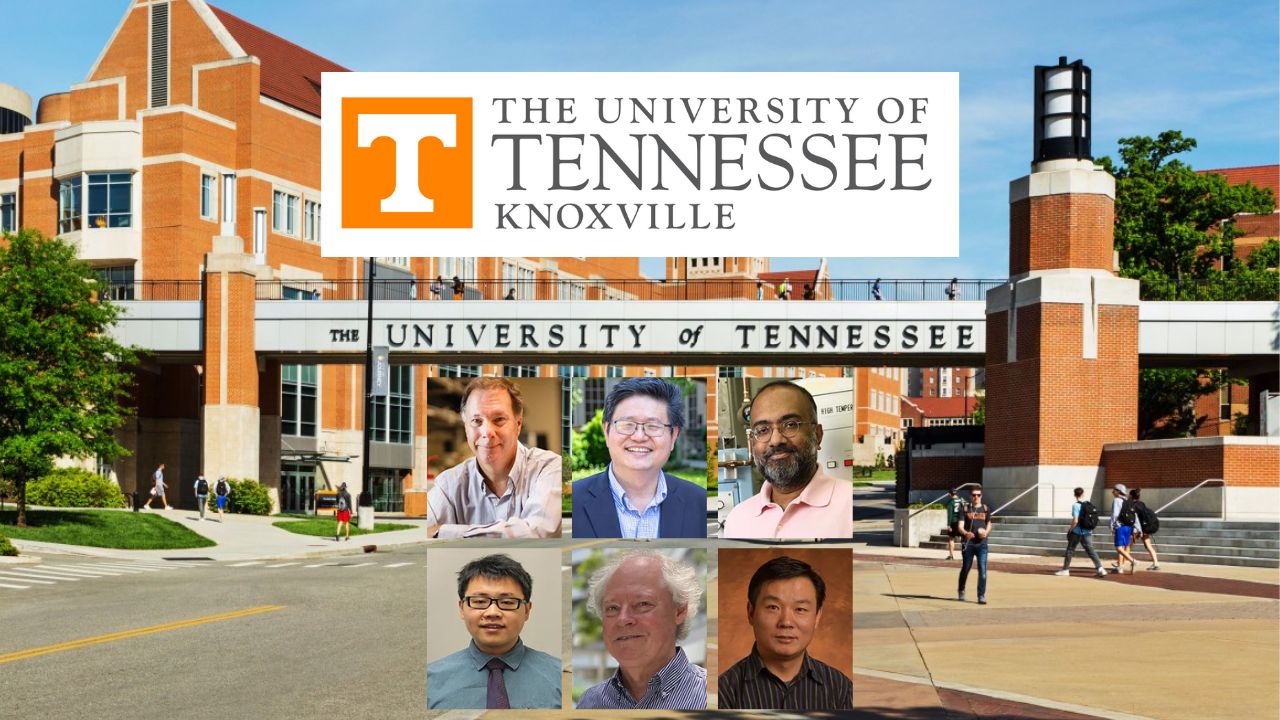Based on information from the University of Tennessee, Knoxville
Six faculty members from the University of Tennessee – Knoxville, have been recognized among the world’s most influential scientific minds, earning a place on Clarivate’s Highly Cited Researchers list for 2025. The annual list highlights researchers whose publications rank among the top 1% most cited worldwide over the past decade—a distinction achieved by only one in every 1,000 scientists and social scientists globally.
Of the six honorees, five hail from UT’s Tickle College of Engineering, while one represents the College of Arts and Sciences. Their work spans materials science, chemistry, renewable energy, and quantum physics—fields in which UT continues to demonstrate growing international leadership.
Global Recognition for UT Research Excellence
“Being named among the world’s most highly cited researchers is a powerful testament to the global impact of our faculty and students’ work,” said Deb Crawford, UT’s vice chancellor for research, innovation, and economic development. “We are incredibly proud of these scholars, whose research continues to shape their disciplines and strengthen UT’s reputation as a leader in research that impacts the world.”
Pioneering Scientists Across Disciplines
Sheng Dai, a chemistry professor with a joint appointment at Oak Ridge National Laboratory (ORNL), was named to the list for the 10th time. His research explores advanced materials for energy applications—including ionic liquids, molten salts, and sustainable carbon transformations. Dai is currently investigating how plant-based carbon can be converted into graphite for energy storage and how porous materials can aid in energy-efficient separation and catalysis processes.
Easo George, an emeritus faculty member in materials science and engineering and former UT-ORNL Governor’s Chair for Advanced Alloy Theory and Development, continues his groundbreaking work on metallic materials capable of withstanding extreme temperatures. His studies include high-entropy alloys and refractory metals such as platinum, tantalum, and iridium.
David Mandrus, the Jerry and Kay Henry Professor of Materials Science and Engineering, holds joint appointments with ORNL and UT’s Department of Physics. His research centers on quantum materials—particularly two-dimensional magnets and chiral magnets with complex field structures that may pave the way for new quantum technologies.
“Achieving high-impact science requires strong collaboration,” Mandrus said. “I’ve been fortunate to partner with outstanding students and researchers whose commitment and creativity have made this recognition possible.”
Innovations in Renewable Energy and Microscopy
Xianzhi Meng, a research scientist in chemical and biomolecular engineering, was recognized for her contributions to renewable energy and sustainable materials. Her work focuses on converting biomass into bioplastics and biofuels. Meng’s current project involves developing a green method to turn lignin—a plant-based polymer—into safer, more sustainable polyurethane for building insulation.
“While this might seem like a personal achievement, it truly reflects the work of many,” Meng said, crediting her mentor Arthur Ragauskas, UT-ORNL Governor’s Chair for Biorefining.
Stephen J. Pennycook, adjunct professor of materials science and engineering and physics, earned his fifth Clarivate recognition. A world-renowned electron microscopist, Pennycook pioneered scanning transmission electron microscopy (STEM) and the Z-contrast imaging technique that first captured single atoms of boron, carbon, nitrogen, and oxygen. His work has revolutionized atomic-scale imaging in materials science.
Jiaqiang Yan, research professor of materials science and engineering and distinguished staff scientist in ORNL’s Correlated Electron Materials Group, was named to the list for the seventh consecutive year. His research focuses on developing new materials with unconventional electrical and magnetic properties that could drive the next generation of energy and quantum innovations.
Strengthening Tennessee’s Research Impact
Together, these six faculty members exemplify UT’s growing prominence as a hub for high-impact, collaborative research. Their discoveries—ranging from clean energy and sustainable materials to quantum science—underscore Tennessee’s role in shaping global scientific progress.
Information courtesy of the University of Tennessee, Knoxville.















